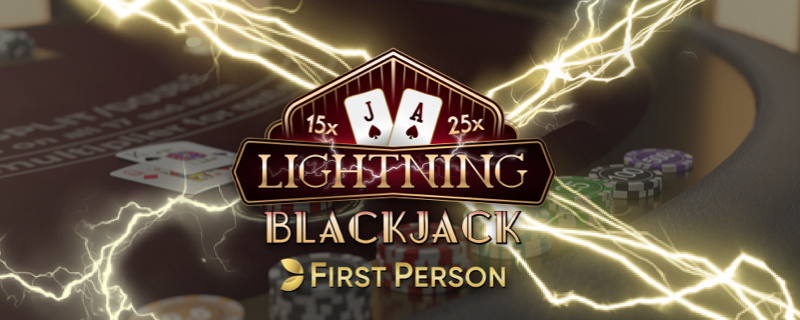BETDAQ EXCHANGE VIEW This is the third edition in our serise of interviews with Professional Traders using BETDAQ. This week, Stephen Maher chats with Sim Mahon on his trading strategies.
Stephen Maher: So, for anyone who doesn’t know you, can you tell us a bit about yourself?
Sim Mahon: Hello my name is Sim Mahon, a professional gambler just about on the right side of 30. I have been a professional for 8 years, initially an online cash game no limit holdem poker specialist and now a sports trader.
Stephen Maher: How did you get into trading?
Sim Mahon: I started trading recreationally a few years ago after meeting a few cricket traders through Twitter. I have been a cricket nut my entire life and found the trading markets a beatable and exciting way to bet on what I was watching. I made the transition over in 2013. I was very lucky in getting some very candid mentoring from some excellent traders when I started.
Stephen Maher: What’s the biggest lifestyle advantage to trading full time rather than playing poker full time?
Sim Mahon: There are certainly perks for both. Poker cash games is an extremely flexible way to make a living. You can work from anywhere and for any length of time. Cricket trading is set hours. Sometimes you end up working 20 hours a day, other times you can end up with an entire week off. The downtime is something I never offered myself when playing poker.
Stephen Maher: What are your favourite sports to trade?
Sim Mahon: Cricket and NFL for me are the really enjoyable sports to trade. NFL pre match spread markets are extremely difficult to beat, I imagine I am a long term loser in them for sure. I stick to player yardage markets and in play moneyline trading. The game is inherently swingy and the markets reflect that. An NFL game is never dead and it does seem that favourites are far too heavily backed in play, especially early in a match. T20 cricket is actually very similar in its movements. Cricket requires a good knowledge of players but for me opinions on the pitch are where I have made money in the past. If you can read the pitch and have experience in how a market reacts to events on the field you are more than half way to a successful trader.
Stephen Maher: What’s your biggest loss?
Sim Mahon: I’ve had more 5 figure trading losses than 5 figure wins which isn’t something I am particularly proud of! My biggest loss came in the Cricket World Cup 2015 semi final between India and Australia. India were chasing a target or around 300 and were looking extremely good at one stage to be competitive. The market was giving them no respect whatsoever and I felt that on a few boundaries the market would panic and allow for a lot a ticks in the market for not much at all. I had a good world cup up until that point and so decided to press my position harder than normal. India then lost 2 wickets in a matter of a few balls and I was left licking my wounds for around £12,000 loss. Frustrating given that was probably the only 12 balls I was against Australia in the entire tournament.
Stephen Maher: What do you think is the best way to deal with losing mentally? And did you ever struggle with staking when switching from poker to trading? Do you it’s harder to be disciplined in poker or sports trading?
Sim Mahon: Taking a break helps immensely following a loss. There is no way I am making optimal decisions after a succession of losses so best just to get away from the computer. In fact this year I took an entire month off betting in August just to enjoy the summer and get my head straight.
In my poker days I must have read “The Mental Game of Poker” by Jared Tendler about 15 times, it was what I did to reset my thinking before getting back into the cash game routine.
It was certainly easier to deal with losses as a poker player as its easier to numerate your edges in big pots and to analyse your play afterwards. Trading is very subjective and opinion based so harder to calculate whether any decision you made was good long term or not.
Stephen Maher: What advice would you give to newcomers looking to get into trading full time? And from your own experience how long did it take you to make the switch from poker to trading?
Sim Mahon: Specialise. If I had stuck to cricket and solely cricket I would be a lot less stressed and richer than I am now. Tennis in particular was a sport I was convinced I could beat. I can’t as it turns out… To compare to a poker analogy, I specialised in No Limit Hold’em but I never felt the urge to go jump into a high stakes Razz game for example. If only I treated tennis like Razz! The need to bet on something just because its on television is the first mistake of any gambler and something we have all done.
Stephen Maher: How long did it take you to make the switch from poker to trading?
Sim Mahon: The switch from poker to trading wasn’t exactly a rigid one and I think that’s why I was successful straight away when trading. I made the move officially once I realised I could make the same money as a trader and do something new and more testing. Poker income allowed me about two years of teaching myself how to trade a cricket market and make the transition when I was ready and confident.
Stephen Maher: What do you think about BETDAQ liquidity and in your opinion what sports could they improve upon regarding liquidity?
Sim Mahon: My experience of BETDAQ is that horses pre off are an excellent option. No premium charges, low commission and plenty of liquidity especially in the 5 mins leading up to the race. The problems for all competing exchanges is that the second the market turns to an in play one liquidity is either non existent or a few bots cloning the Betfair prices but with a longer clock. People want to use BETDAQ and not hand over premium charges every week, but until liquidity finds its way over most are left with no choice but to grin and bear it. I am sure there are cricket layers on Betfair that operate in India. After a bookie sting in India liquidity plummeted almost instantly. The big market makers are likely paying no premium charges and are providing a service to Betfair that the other exchanges can’t compete with.
Stephen Maher: I know you use BETDAQ for horse racing – what’s your honest opinion on the racing markets on BETDAQ?
Sim Mahon: Excellent, liquidity was more than enough for most of the betting I did and the iPhone app is more than decent. One thing that Betfair has is the BFSP where you can also set your minimum prices and limits, great for if you know what you are betting on that day and not at the computer. Something that would be a great addition to BETDAQ. Horses are a great way for BETDAQ to expand for me, there is plenty of interest there currently clearly and bookies in the UK are becoming more and more wary of winning horse punters. Much easier for them just to take football bets using Asian prices as a their oddsmakers.
You can follow Sim on Twitter at @SimUKCricket
You can now follow BETDAQ updates on Google+
For further details – CLICK HERE
£25 IN FREE BETS









